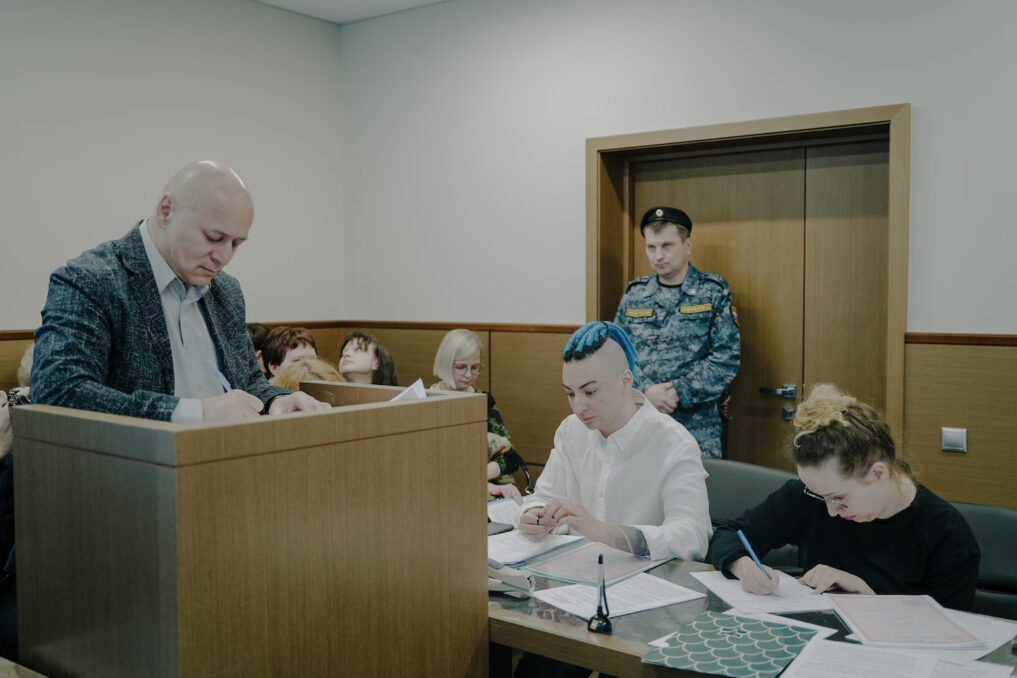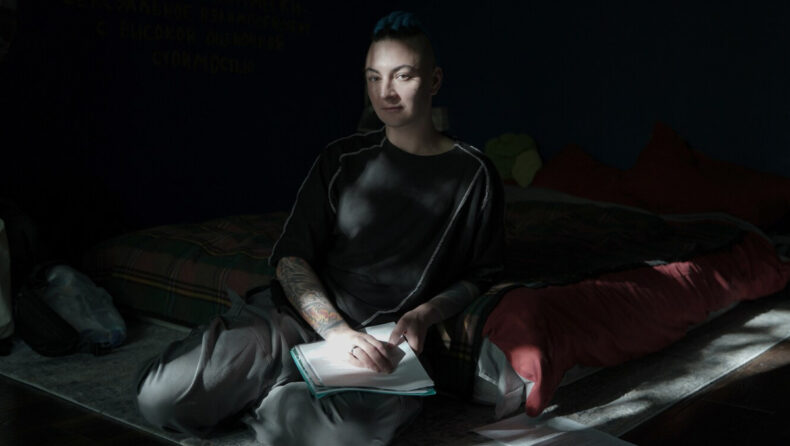Jan Dvorkin was living his life happily until one day, his life was turned upside down. For seven years, Jan had raised and nurtured his adopted son in Moscow. One day in May, he is notified by the Russian authorities that his custody is being revoked. He was reported to the Russian authorities by a woman. His crime? He was a transgender, nonbinary person, married to a man. Being transgender and gay, made him an unfit parent.

He could have avoided had he been closeted. Luckily, he could save his kid, who was deaf, from being orphaned and found another family for him. He could now visit his own kid.
Mr. Dvorkin’s experience highlights the increasingly repressive treatment gay and transgender people are being subjected to across Russia. This hardship seems to grow as the Russian government leverages the war in Ukraine as justification for greater restrictions on L.G.B.T.Q. life.
Russia’s restriction on L.G.B.T.Q:
Last week, President Vladimir V. Putin approved a bill making all surgeries and hormone therapies used for gender transformations illegal. This was the most recent crackdown.
This rule builds upon one that was passed in December of last year and forbids the depiction of L.G.B.T.Q. partnerships in any kind of media, including films, books, music, posters, billboards, and social media.
This Putin move has been by critics, including legal and medical professionals and gay rights activists, as a scapegoat to divert attention from Russia’s military failings in Ukraine.
When their external enemy proves to be more formidable than anticipated, it is normal procedure, according to Mr. Dvorkin, 32, who stated this in an interview from Moscow. “After experiencing failure on the front lines, Putin discovered an easier foe, a helpless people that he could subdue in Russia.
Mr. Putin had disdained LGBT rights even before he invaded Ukraine. However, as his military faltered, he started to reframe the conflict as a Western effort to compromise Russian security and “traditional values.” This makes us believe that these repressive measures and the laws are inspired by Mr. Putin himself.
He frequently mocked transgender persons in his talks, mocked the idea of “Parent No. 1 and Parent No. 2” in place of “mom and dad,” and implied that the West wanted to force the world to accept “dozens of genders.” He aimed at both concerns of gender identity and sexual orientation.
All gender changes are now prohibited by the new law, as well as changing the gender on official papers like passports. The law was decisively enacted by the Russian Parliament, which is generally a rubber stamp for Mr. Putin’s preferred legislation. It got worse as it went along. The final version prohibits such couples from adopting children and annuls marriages when one spouse changes gender.

According to rights groups, the law effectively denies transgender persons the opportunity to manage their own bodies, and even if they had the funds to travel outside for surgery—which many do not—they would not be able to update official papers. The incorrect gender being listed on identification documents would present difficulties in many areas of life, including employment and travel.
The new regulation also prohibits using either testosterone or estrogen therapy, which are frequently used prior to transition surgery. For those who had begun the procedure and had already updated documents, there are a few exceptions.
Critics claimed that the restriction might result in what would basically be a drug underground market. One transgender individual said that a covert laboratory in St. Petersburg was already attempting to produce estrogen from over-the-counter medications. The source, who insisted on anonymity to prevent retaliation, added that illicit testosterone posed a greater difficulty, reported The New York Times.
The New York Times reported that the survey taken by the independent pollster Levada shows that, over the last decade, it’s possible that a campaign against the L.G.B.T.Q. community influenced Russian sentiments. From 26% in 2013 to 38% in 2021, those who stated they had a negative or fearful opinion of LGBT people grew.
The first Russian law prohibiting the dissemination of “gay propaganda” was framed as a child protection measure in 2013. This time, the law prohibiting gender transformation was justified as an issue of national security, with the war as a backdrop.
The bill also fits with Mr. Putin’s long-running campaign to depict Russia as a haven for what he terms “traditional family values,” which is a strategy to win over conservative voters both at home and abroad.
The law dealt the L.G.B.T. Q. community yet another blow.
According to Mr. Dvorkin, the attitude among transgender persons is “dark and depressing,” and they are preparing for an increase in hate crimes. “Vocal hate groups were already on the rise, and since the law passed, they have gone off the rails,” he claimed.













